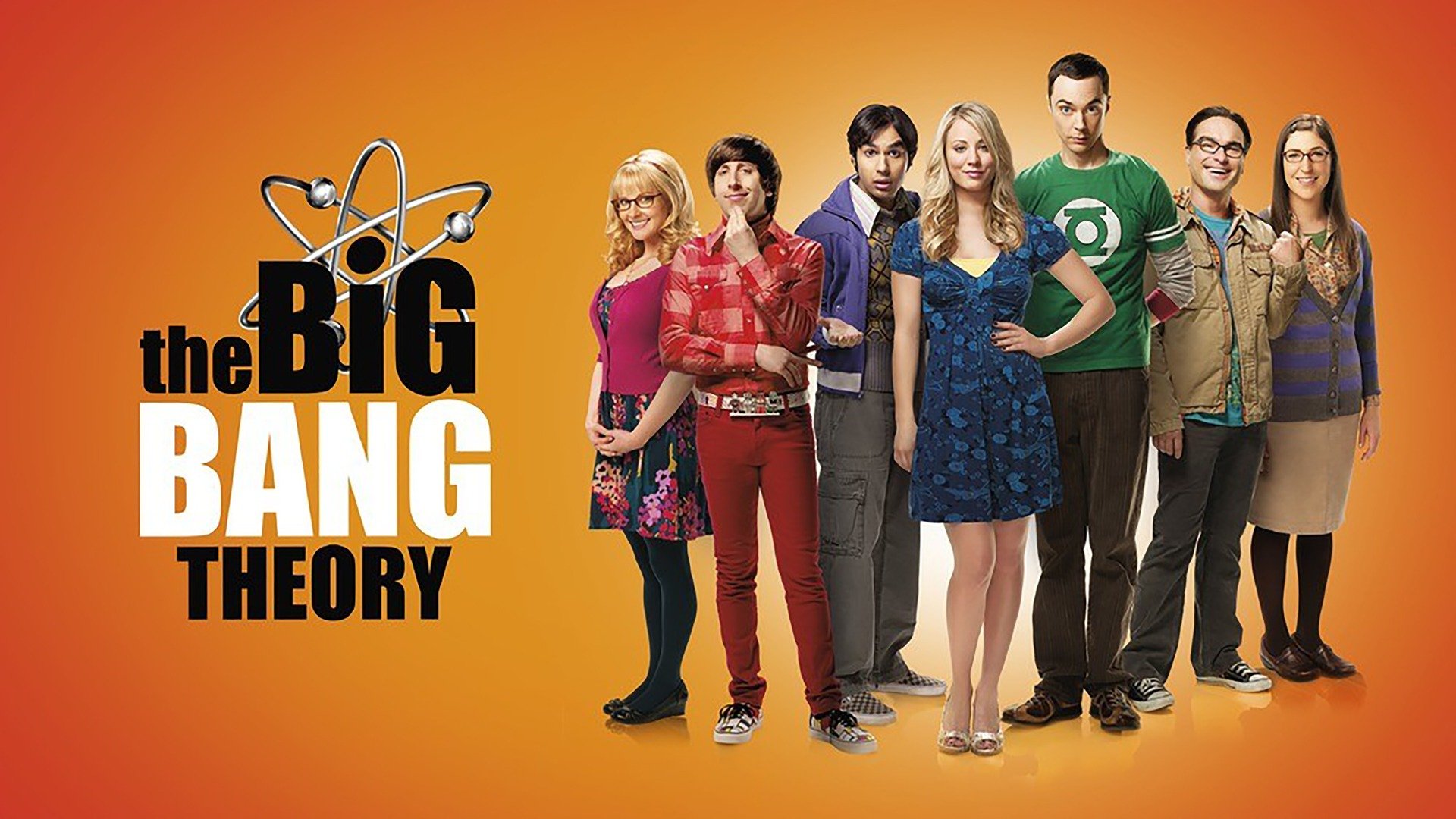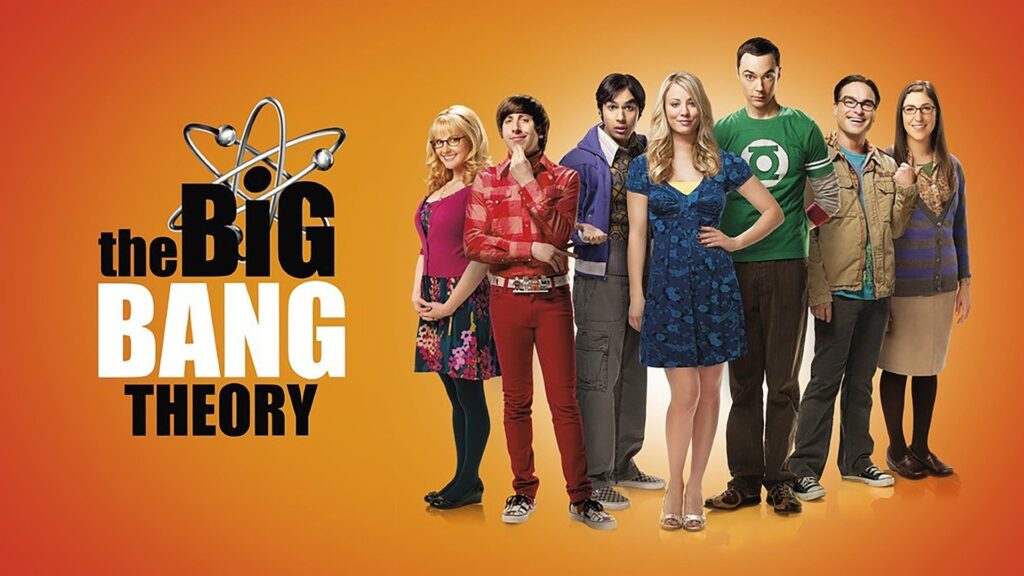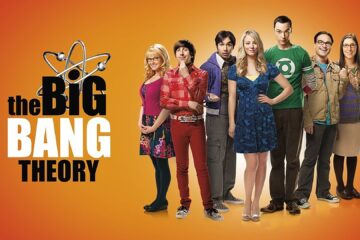The Big Bang Theory Season 1 Episode 3 – | The Procreation Calculation

The Big Bang Theory Season 1 Episode 3, titled “The Wolowitzes’ Woes,” Stuart’s entrance into a new relationship adds a layer of complexity to the Wolowitz household. Meanwhile, Penny and Leonard engage in a discussion about embarking on parenthood, while Koothrappali delves into the realm of arranged marriages.
Links for The Big Bang Theory
All The Big Bang Theory Season 1 Vocabulary Lists

Vocabulary List for The Big Bang Theory Season 1 Episode 3 Part 1
Here are the potentially unknown vocabulary words from the script along with their explanations:
- Gates of Elzebub: Refers to a fictional location or landmark. Elzebub is a play on the name Beelzebub, a term sometimes associated with the devil or evil spirits.
- Frosty: To “stay frosty” means to remain calm and composed in a tense or dangerous situation.
- Horde: A large group or crowd, often used to describe a group of enemies or attackers.
- Unsheathe: To draw a weapon from its sheath (scabbard or protective covering).
- Magic wielders: Individuals who use or control magical abilities.
- Lock and load: A military phrase that means to prepare firearms for action by loading ammunition and ensuring they are ready to fire.
- Blow the gates: To forcefully open or destroy a gate, often with explosives.
- Teleport: Instantaneous transportation from one location to another, typically in a fantasy or science fiction context.
- Rogue knight elf: A character description referring to a deceitful or unorthodox warrior from an elven race in a fantasy setting.
- eBay: A well-known online marketplace where users can buy and sell various goods through auction or direct purchase.
- Infatuation: An intense but often short-lived passion or admiration for someone.
- Devolve: To gradually deteriorate or decline from a more advanced or positive state to a less advanced or negative one.
- Pheromones: Chemical substances produced by animals, including humans, that can influence behavior or attract others, often related to mating or social interactions.
- Paradigm: A typical example or model of something; a conceptual framework.
- Biosocial: Relating to the interaction between biological factors and social behavior.
- Neurochemical overlay: The influence of neurotransmitters and other chemicals in the brain on behavior and emotions.
- Arousal: Sexual or physiological excitement or stimulation.
- Extraneous: Not essential or relevant; unrelated to the main subject or purpose.
- Spontaneous: Occurring naturally or without planning; unplanned.
- Scabbard: A protective sheath for a sword or blade.
- Fantasy fiction: A genre of literature or storytelling involving imaginative and often fantastical elements.
Please note that the script contains some playful and fictional terms related to fantasy and role-playing themes, which might not have direct real-world equivalents.

Vocabulary List for The Big Bang Theory Season 1 Episode 3 Part 2
Sure, here are the potentially unknown vocabulary words and phrases from the script, along with their explanations:
- Asimov’s Three Laws of Robotics: Refers to the three laws formulated by science fiction writer Isaac Asimov that govern the behavior of robots. These laws are often depicted in his stories to explore ethical and moral issues related to artificial intelligence and robotics.
- Emo songs: Short for “emotional songs.” Emo is a genre of music characterized by its emotional and often introspective lyrics. It originated in the punk rock scene and is known for its passionate and confessional themes.
- Latin hips: This likely refers to a dance move or technique where the hips are moved in a certain way, possibly inspired by Latin or salsa dancing styles.
- Hypoallergenic calicos: A reference to cats with a hypoallergenic trait, meaning they are less likely to cause allergic reactions in sensitive individuals. “Calico” is a type of cat coat color pattern.
- Genetically altered cat: Refers to a cat that has been modified at the genetic level, usually to possess specific traits or characteristics.
- Algebraically speaking: This phrase suggests looking at something from a mathematical or analytical perspective, often used humorously to analyze a situation or problem in a structured way.
- A subset of them might be there: In mathematics and set theory, a subset is a group of elements selected from a larger set. Here, it’s used metaphorically to refer to a partial group of people attending an event.
- Dense molecular cloud of Aramis: This is likely a humorous metaphor, comparing the scent of the person’s cologne (Aramis) to a dense molecular cloud, suggesting a strong and lingering fragrance.
- Chicken-carbonara sub at Quizno’s: Refers to a type of sandwich called a “sub” or submarine sandwich, specifically a chicken carbonara sub from the restaurant chain Quizno’s. Carbonara is a type of pasta sauce.
- Unpleasant six months of passing awkwardly in the hall: Implies a period of discomfort and avoidance when encountering someone in a shared space, such as a hallway, due to awkwardness or unresolved feelings.
- Zip code: A postal code used in the United States to identify specific geographic areas for mail delivery. In this context, it’s used metaphorically to imply moving to a different location to avoid awkward encounters.
- Biting my lower lip: This is a gesture often associated with romantic or flirtatious behavior, indicating attraction or desire.
- Increase your alpha-waves: Alpha-waves are a type of brainwave associated with a relaxed but awake mental state. The instruction to increase alpha-waves is a humorous attempt to help the person calm down from a panic attack.
Please note that the explanations provided here are based on the context and general knowledge up to September 2021, and they may not cover the exact nuance or reference intended in the script.

Vocabulary List for The Big Bang Theory Season 1 Episode 3 Part 3
Here are the potentially unknown vocabulary words from the script, along with their explanations:
- Biofeedback: A technique that involves using electronic monitoring to provide information about physiological processes, such as heart rate, with the goal of gaining conscious control over these processes.
- Brainwave manipulation: The process of intentionally altering brainwave patterns through various methods, often to achieve relaxation or other desired mental states.
- Sparsely sourced: Referring to information or research that is supported by limited or few sources, indicating a scarcity of references or evidence.
- Colonoscopy: A medical procedure involving the examination of the colon and rectum using a flexible tube with a camera, typically used for screening and diagnosing conditions in the lower digestive tract.
- Venereal: Relating to or transmitted by sexual contact, usually referring to sexually transmitted diseases (STDs).
- Intestinal polyps: Abnormal growths that can develop in the lining of the intestines, which may be benign or potentially cancerous.
- Internal logical consistency: When an idea or theory holds together logically and coherently within its own framework.
- String theory: A theoretical framework in physics that aims to describe all fundamental forces and particles in the universe as different manifestations of one-dimensional “strings.”
- Cheesecake Factory: A chain of restaurants known for its extensive menu, including various types of cheesecakes.
- Rebound sex: Engaging in sexual activity shortly after the end of a previous romantic relationship, often without emotional attachment.
- Centrifugal force: The apparent outward force acting on an object moving in a curved path, away from the center of rotation.
- Centripetal force: The force directed toward the center of rotation that keeps an object moving in a curved path.
- Inertial reference frame: A frame of reference that is not accelerating, where Newton’s laws of motion hold true without the need for introducing additional forces.
- Concussion: A traumatic brain injury resulting from a blow to the head or violent shaking, often causing temporary cognitive impairments.
Please note that these explanations are meant to provide a general understanding of the terms without revealing any specific details or spoilers from the script.

0 Comments